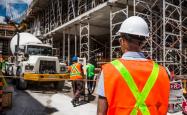TheIntegralRoleofPhysicalHealthEducationinModernEducationSystems
Introduction
Physical health education, often referred to as physical education (PE) or gym class, is a fundamental component of the educational curriculum worldwide. This discipline is not merely about teaching students how to play sports or engage in physical activities; it is a comprehensive approach to promoting lifelong health and wellbeing. In this article, we will explore the multifaceted role of physical health education in modern education systems, emphasizing its importance in fostering physical, mental, and social development among students.
The Physical Benefits of Physical Health Education
Physical health education plays a pivotal role in combating the global epidemic of sedentary lifestyles and obesity. Regular participation in PE classes helps students to develop healthy exercise habits, improve cardiovascular fitness, build strength, and enhance flexibility. These physical benefits are crucial for preventing chronic diseases such as diabetes, heart disease, and certain types of cancer. Moreover, physical activity has been shown to boost the immune system, improve sleep quality, and increase energy levels, all of which contribute to overall health and wellbeing.
Mental Health and Cognitive Development
Beyond the physical benefits, physical health education has a profound impact on students' mental health and cognitive abilities. Engaging in regular physical activity has been linked to reduced symptoms of depression and anxiety, as exercise stimulates the production of endorphins, the body's natural mood elevators. Additionally, PE classes provide a structured environment for students to learn stress management techniques and coping strategies, which are essential skills for maintaining mental health.
Cognitively, physical activity has been shown to enhance brain function and academic performance. Studies indicate that students who participate in regular physical education exhibit improved concentration, memory, and classroom behavior. Exercise increases blood flow to the brain, which can help with cognitive tasks and problemsolving. Furthermore, the discipline and goalsetting skills learned in PE classes can be transferred to academic settings, promoting a more focused and motivated learning environment.
Social and Emotional Learning
Physical health education also serves as a platform for social and emotional learning (SEL). In PE classes, students learn the importance of teamwork, cooperation, and fair play. They develop communication skills, leadership qualities, and the ability to resolve conflicts in a noncompetitive environment. These social skills are vital for personal and professional success in adulthood.

Moreover, physical education provides a safe space for students to express themselves and build selfconfidence. Through the achievement of physical goals, students can experience a sense of accomplishment and selfefficacy, which are critical for their emotional development. PE classes also promote inclusivity and diversity, as they often involve activities that cater to different abilities and interests, fostering a sense of belonging among students.
The Role of Physical Health Education in Preventing Childhood Obesity
Childhood obesity is a growing concern, with significant implications for public health. Physical health education is a key strategy in addressing this issue. By providing students with the knowledge and skills to engage in regular physical activity, PE classes help to establish healthy habits early in life. This foundation is crucial for preventing obesity and promoting a healthy lifestyle that can be sustained into adulthood.
Furthermore, physical health education can empower students to make informed decisions about nutrition and physical activity. By integrating health education into the PE curriculum, students learn about the importance of a balanced diet and the impact of nutrition on physical performance. This holistic approach to health education equips students with the tools they need to maintain a healthy weight and prevent obesityrelated health issues.
Conclusion
Physical health education is an indispensable component of modern education systems. It not only promotes physical fitness but also contributes to mental health, cognitive development, and social and emotional learning. As educators and policymakers continue to recognize the value of PE, it is imperative to ensure that physical health education is adequately funded and integrated into the core curriculum. By doing so, we can empower the next generation with the knowledge and skills necessary to lead healthy, active lives and contribute positively to society.








